After a week in North Carolina visiting 6 shelters, we learned a lot. Despite now visiting over 100 shelters, each visit teaches me something new about the challenges of saving dogs in the south and/or reminds me of some of the solutions.
As exhausting as it can be, every single trip reinforces why we go to the shelters. Until I’ve met the people facing the real challenges on the front lines of animal sheltering, I can’t begin to truly understand what it will take to fix things.














We don’t travel to shelters just to learn more, we also travel to the shelters because it sends a strong message that the work they do is important. It says, ‘We value what you are trying to do; we want to know more about your work; we want to stand alongside you and help in any way we can.’ Shelter and rescue work can be heartbreaking. It’s easy to become discouraged, cynical, and frustrated with the people who do not value animals or the challenge of sheltering them. Witnessing the suffering, and sometimes death, of animals on a daily basis is wearing on a soul. We want to support the people who put their souls on the line every day.
In upcoming posts (after we finish highlighting the shelters we visited on fall tour!), I will share with you in greater detail about each of these shelters, but for now, here are just a few things I learned at each shelter we visited:
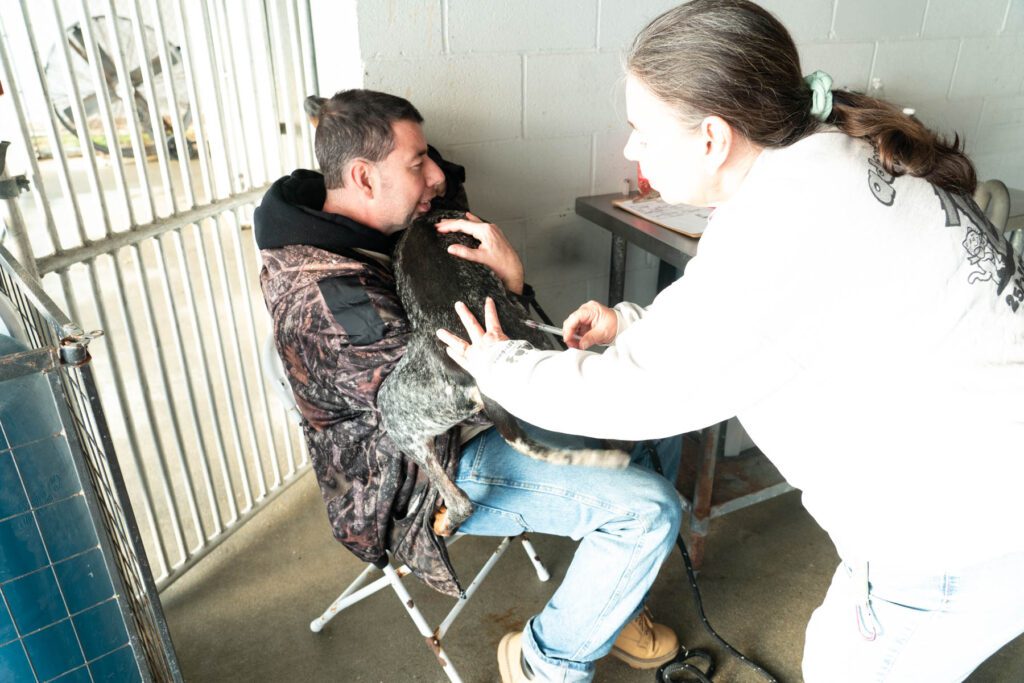

VISIT #97: Bertie County Animal Shelter, Windsor, NC
In North Carolina, staff and/or volunteers can take a course to be certified to give rabies vaccinations. In all the other states we’ve visited, rabies vaccines can only be given by licensed veterinarians; this can create barriers to getting animals adopted, as shelters wait (with the rest of us) for veterinarian appointments that are hard to get. Also, when animals’ lives depend on the work of volunteers, it’s important to bring in younger volunteers to take over for older volunteers who have shouldered the burden for too many years, and transfer that knowledge. Plus, even when you live two hours (or further) from a shelter, you can still help that shelter save lives.
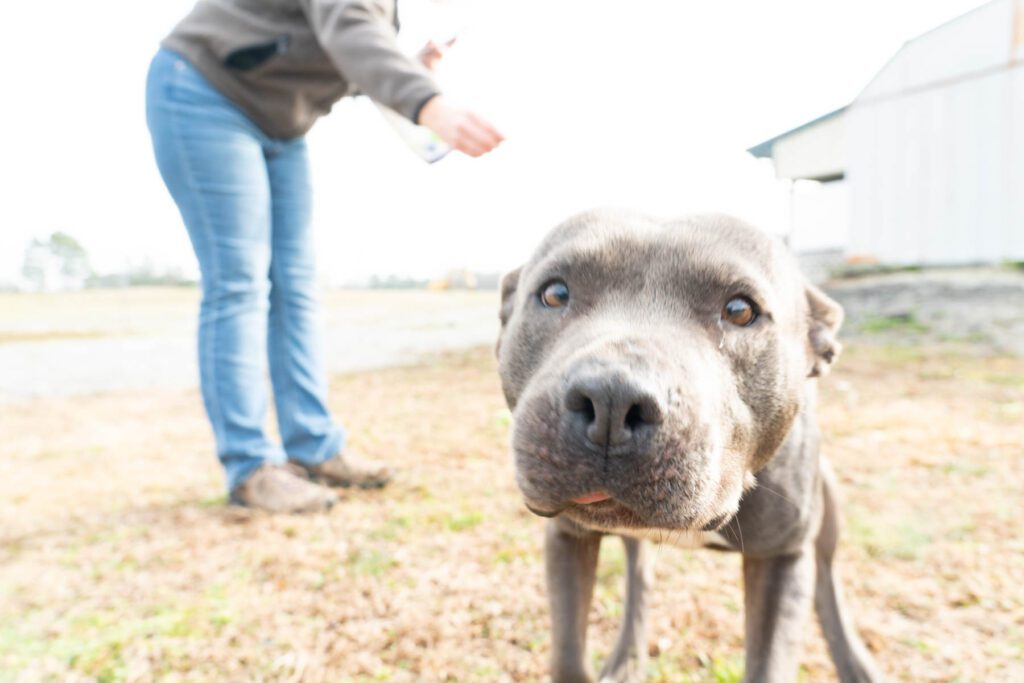

VISIT #98: Tyrrell Animal Control Shelter, Columbia, NC
An ACO’s job is not just about animals; it also often requires that you assist neighbors in dealing with neighbors when they can’t talk to each other about their frustrations over each other’s animal practices. I hadn’t thought about this aspect of an ACO’s job. Often there is no violation for the ACO to address, just a need to be a mediator between two humans with a disagreement about a dog. Giving trusted volunteers access to the shelter and the animals makes for happier animals and less work for ACOs. AND peanut butter boards (see our Resource Guide for info) are a great way to soothe and quiet shelter dogs.
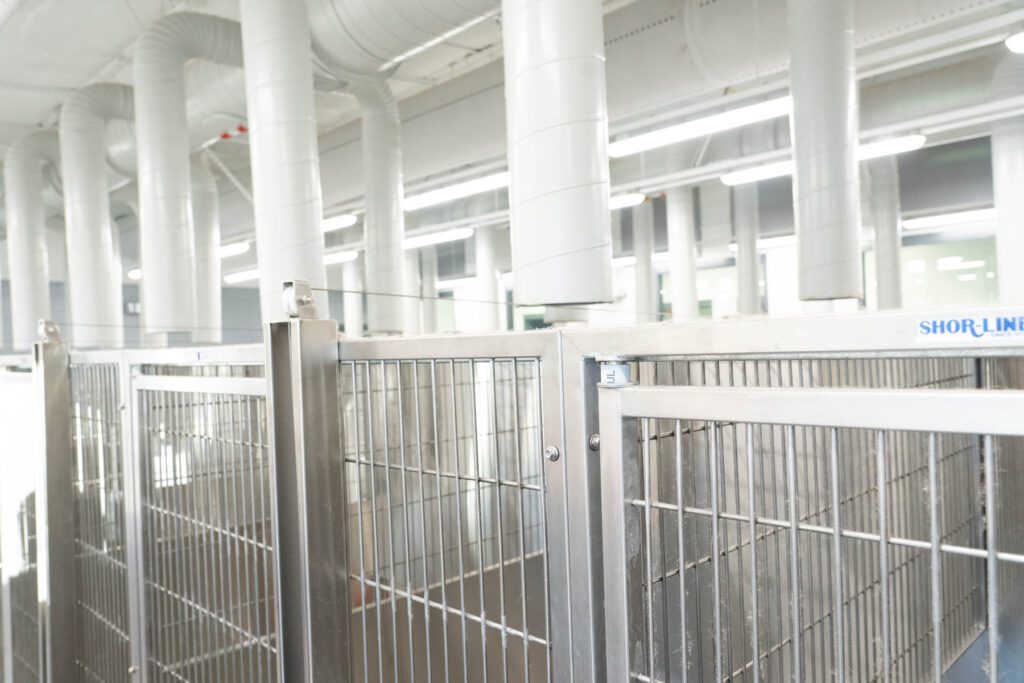

VISIT #99: Onslow Animal Shelter
Individual ventilation systems for each kennel can reduce the spread of disease within a large shelter. When shelters are close to military bases, the number of dogs surrendered by their owners spike with every deployment. We need to figure out a way to partner with military members and families to foster dogs for a shelter, rather than adopt. It could be a win-win for everyone, saving lives (especially in a shelter where the live release rate is just 66%) and giving military members a way to enjoy the benefits of a pet without the guilt of giving up that pet when deployed. Even when you have a big, beautiful building, if you do not have enough staff to care for the animals, it limits how many lives you can save.
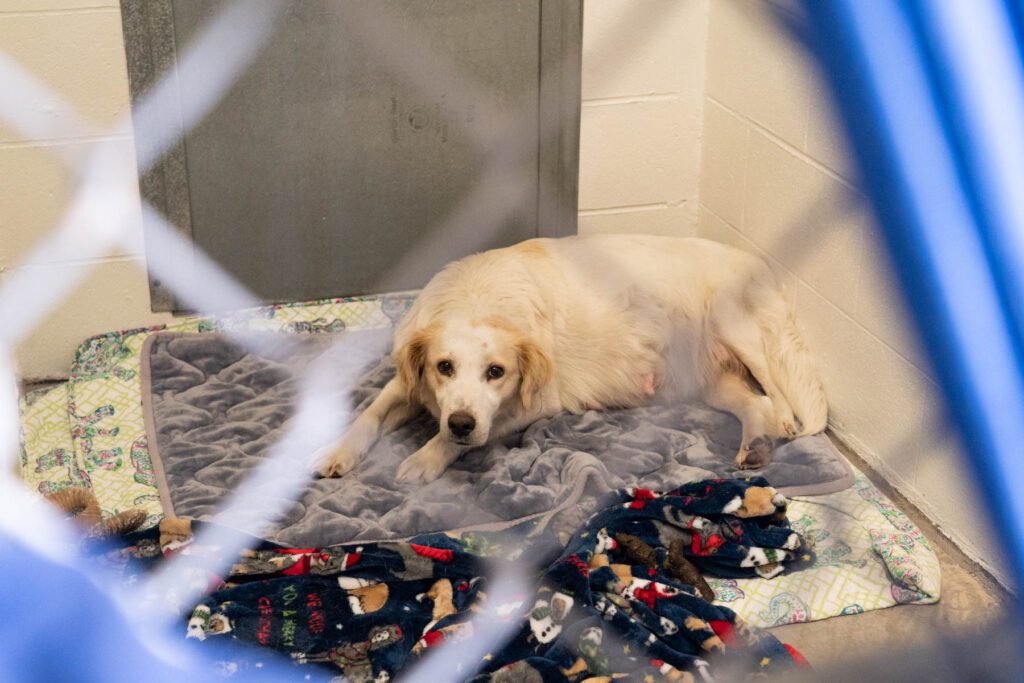

VISIT #100 CARA (Carolina Animal Rescue and Adoption)
Placing your shelter next to a cement plant is brilliant (no one minds each other’s noise). Also, keeping quarantine/sick/in treatment animals in a separate part of the shelter with a kennel attendant assigned to only work in that area (and a separate one for the adoptable side of the shelter), reduces the spread of disease. A vibrant, empowering volunteer program creates a happy atmosphere full of people who will be willing to do more for your animals. Socializing, enrichment, and exercise are critical for long-stay dogs. And – when you are a small, private shelter you can give individualized care to the dogs who need it most.


VISIT #101 Moore County Animal Shelter
Utilizing a kiosk or other kind of system to showcase your adoptable dogs makes sense. At Moore County (where the staff is trained in fear-free sheltering), the public is not allowed to walk through the kennels because this will only stress out the already stressed dogs. Instead, potential adopters look through a kiosk in the lobby that has pictures/information about the dogs. Then a staff member helps them choose a dog based on the dog’s personality/needs and the adopters home situation/desires. After that they can meet in a neutral area. This way of adopting dogs makes SO MUCH SENSE.
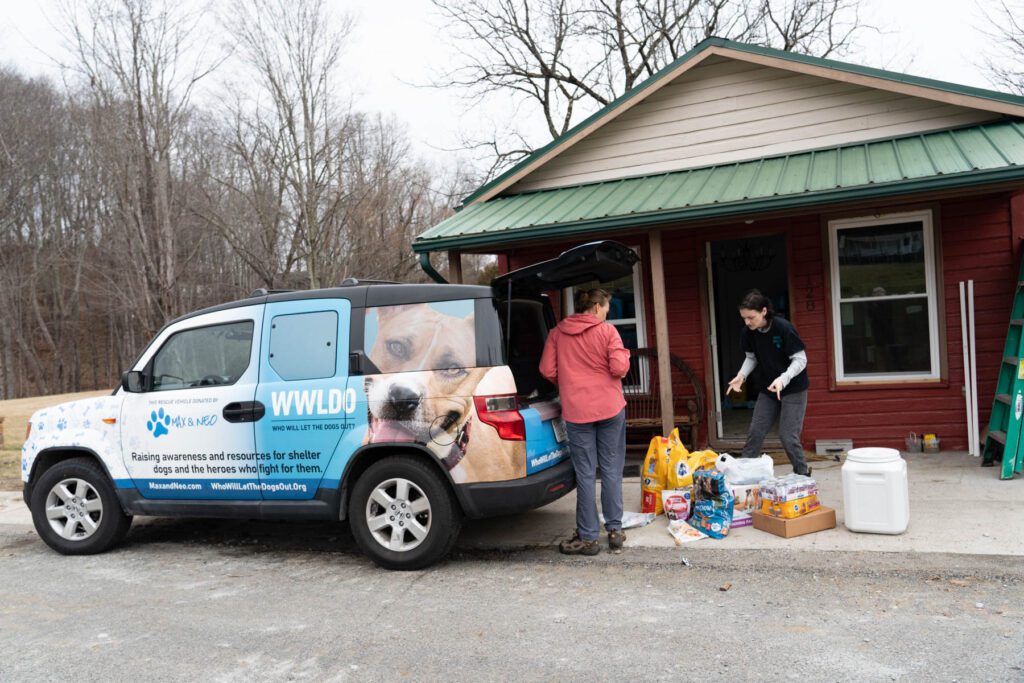

VISIT #102: Avery County Animal Support
Having some kind of Animal Control is essential in every county, but there are additional sheltering issues in locations with a lot of tourist attractions. When locals step up and voice a need, communities will respond. Offering help without judgment to animal owners gives you a better chance at actually doing some good for the animals in need. A community can come together over a collective desire to do better by their animals. One person can truly make a difference. This inspiring story will warm your heart.


VISIT #103: Scott County Humane Society/Scott County Animal Control
Too often personalities and agendas get in the way of working together to save animals. Beautiful animals will suffer as long as a community views their shelter as a pound. You can find purebred animals in a public shelter (we already knew this, but Scott County reminded us – they had beautiful labs, a sheltie, chihuahuas, and a wirehair terrier amongst their population).


VISIT #104: Patrick County Animal Shelter
Small shelters can survive on the goodwill of their community and individual donors, but without a long-term plan, a trained staff, and a real budget, they will always be vulnerable. A staff member who truly loves her job, can set the tone for an entire shelter (and certainly bring out the best in its dogs).
Again and again, I am amazed at the commitment and creativity of staff, and especially of volunteers, who give so many hours and so much of their lives for animals that are not their own. More than once, I left a shelter and thought, “Thank God for NAME-OF-RESCUE-HERO-WE-JUST-MET.” And then I’ve immediately thought, “But what happens if they get sick or tired or move away or have a crisis that keeps them from helping?”
All too often the lives of animals depend on one individual’s commitment to saving them. I dream of a shelter system with policies and protocols in place that will carry on no matter who the people are that come and go. Without them, the lives of so many animals will always be in jeopardy and we will not ever be able to end this crisis.
North Carolina has many good dog laws and nearly every county has a shelter. They track the record of each life that comes into a shelter and how it leaves. Those are important steps to solving the crisis of too many unwanted dogs dying needlessly. It is reassuring that the state has created a path to fixing this, now they just need to get everyone on it.
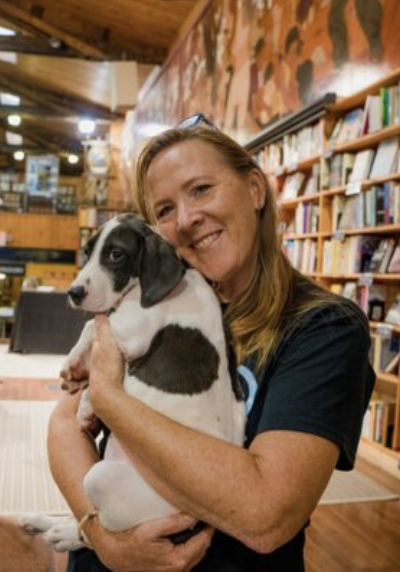

Until each one has a home,
Cara
If you want to learn more, be sure to subscribe to this blog. And help us spread the word by sharing this post with others. Visit our website to learn more.
You can also help raise awareness by following/commenting/sharing us on Facebook, Instagram, YouTube, and Tik Tok!
Learn more about what is happening in our southern shelters and rescues in the book, One Hundred Dogs & Counting: One Woman, Ten Thousand Miles, and a Journey Into the Heart of Shelters and Rescues (Pegasus Books, 2020). It’s the story of a challenging foster dog who inspired me to travel south to find out where all the dogs were coming from. It tells the story of how Who Will Let the Dogs Out began. Find it anywhere books are sold. A portion of the proceeds of every book sold go to help unwanted animals in the south.


Watch our Emmy-nominated, award-winning short documentary about rescue in western Tennessee here.
For more information on any of our projects, to talk about rescue in your neck of the woods, please email whowillletthedogsout@gmail.com or carasueachterberg@gmail.com.
And for links to everything WWLDO check out our Linktree.



Leave a Comment
Sign up for our newsletter
Sign up to have our latest news, grant updates, shelter visits, and more delivered to your inbox.
Share this:
Like this: